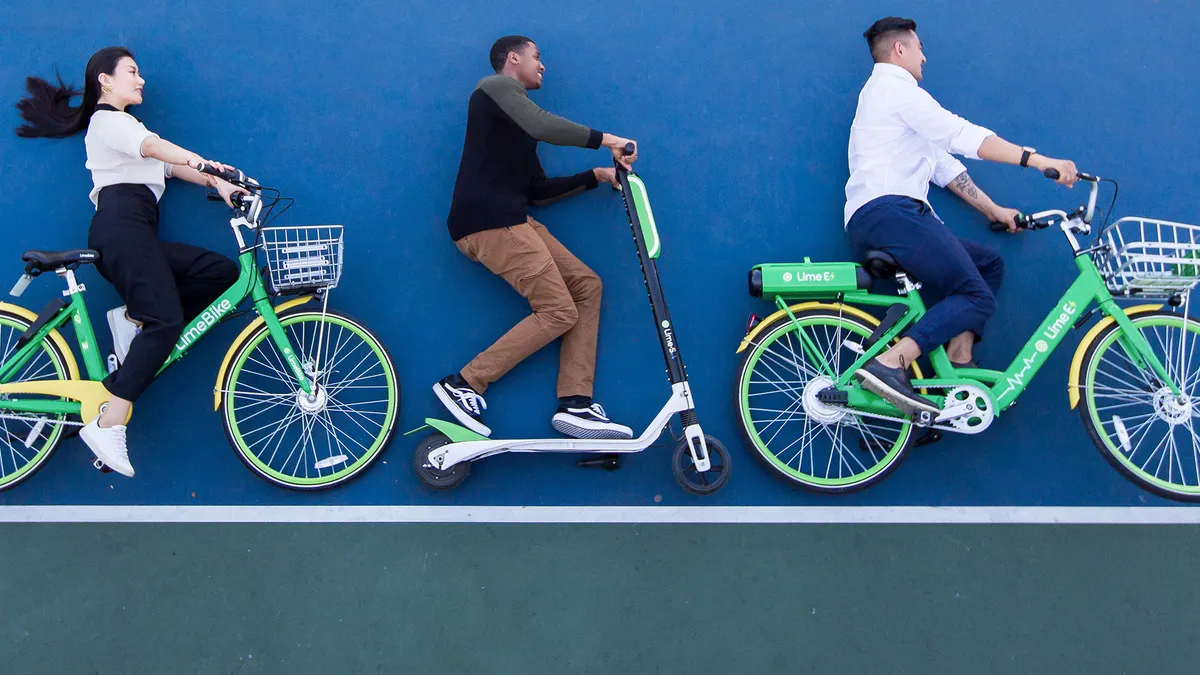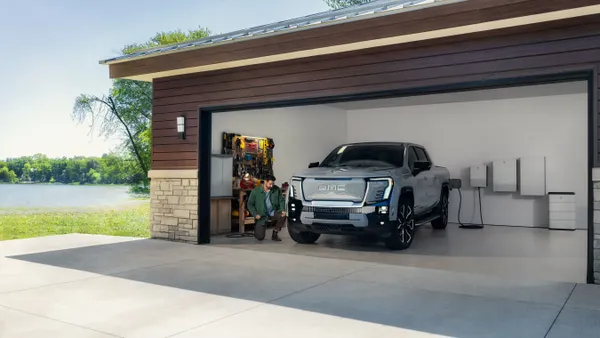Highlights
Footprint:
More than 100 markets worldwide
First launched:
Greensboro, NC in July 2017
Outlook:
The company is likely to continue rolling into new markets, including with its new car-sharing initiative in Seattle
In the blink of an eye, the shared mobility industry exploded in 2018, leaving masses of dockless bikes and scooters sprinkled across cities from coast to coast. While it's not easy to pinpoint exactly when the eruption of these vehicles happened, one company has remained a consistent disruptor in the industry's evolution: Lime.
Since Lime — formerly LimeBike — launched its first fleet of dockless bikes in Greensboro, NC in July 2017, it has positioned itself as a trailblazer of shared vehicle technologies. In the 16 months since its first dockless bike launch, the company has expanded to more than 100 markets internationally; partnered with Segway to become one of the first dockless operators to launch dockless scooters; has launched electric bike fleets; received investments from industry giants like Uber; and is even to launching a car-sharing service.
"It's a very active competitive landscape right now in this industry," Emily Warren, Senior Director of Policy and Public Affairs at Lime, told Smart Cities Dive. "We’re seeing rapid entrants of smaller companies as well as more established companies that want to get into this space and I think all of that is indicative of the very strong consumer response that we've seen to dockless bikes and scooters."
However, that competitive landscape has not always been friendly. Lime, along with other dockless operators, has faced some pushback from cities that are not ready to welcome dockless bikes or scooters, resulting in various cease and desist letters and some negative press. Despite its rapid growth nationwide, there are still some cities that have not yet warmed up to Lime, which CEO Toby Sun says the company is working to improve.
"There are obviously growing pains with the rapid demand that we’ve seen over the past year that often brings negative connotations to the word ‘disruptor’ in the press," Sun told Smart Cities Dive. "I’m proud of how quickly our team has registered feedback and made changes to allow us to positively disrupt, or better yet, influence the way people are getting around cities. If disruption means cleaner, greener and more accessible transportation, I’m excited to be a part of it."
In the cities that it does operate in, Lime has worked diligently to strengthen its communication and transparency, and has placed the onus on itself to provide cities with proper education and data to ensure residents are properly benefiting from the product. In early November, Lime launched its "Respect the Ride" campaign, which will invest more than $3 million in rider education and safety initiatives, and the company subsequently announced it would give away more than 250,000 free helmets around the globe by April of next year.
Disruption is a continued focus for the company, but what that disruption will look like remains to be seen. Warren said while scooters have been in high demand as of late, they're certainly not the end-game for Lime. The company is beginning to focus on other mobility options for folks who, for example, travel with groceries or children or in inclement weather — which may inspire devices "that will improve people's mobility in ways we haven't imagined before."
"Of course, there are other kinds of needs that we might choose to try to serve in the future," Warren said. "Given Lime’s ability to iterate very rapidly on hardware, and the speed at which innovation in the sector is developing, it won't be long before we have additional opportunities to bring in new categories to market."
Read More
-
Lime launches $3M campaign to promote rider responsibility
By Katie Pyzyk • Nov. 6, 2018 -
Lime announces Uber as 'strategic partner' of scooter operations
By Katie Pyzyk • July 10, 2018 -
Lime, Spin enter data-sharing agreement with Los Angeles
By Katie Pyzyk • Nov. 12, 2018












